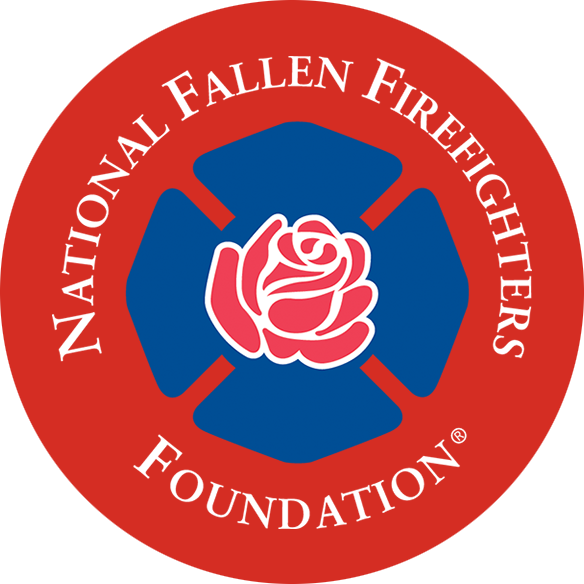Updated July 2021 (COVID-19 related benefits updated April 2021)
COVID-19 BENEFITS
COVID-19-related first responder deaths are considered line-of-duty deaths under the Public Safety Officers’ Benefits Program. Legislation passed in August 2020 established a statutory presumption for first responders who die from, or are disabled by complications related to, COVID-19. Prior to August, suspected cases were required to have proof that exposure occurred during their work duties.
(Legislation: S.3607 – Safeguarding America’s First Responders Act of 2020)
Contact:
Public Safety Officers’ Benefits Program
Phone: (888) 744-6513
E-mail: AskPSOB@.usdoj.gov
Website: bja.ojp.gov/program/psob
Under the Coronavirus Response and Relief Supplemental Appropriations Act of 2021 and the American Rescue Plan Act of 2021, FEMA will provide financial assistance for COVID-19-related funeral expenses incurred after January 20, 2020. The Federal Emergency Management Agency will provide up to $9,000 per funeral and up to $35,500 per applicant to help with expenses related to coronavirus deaths that occurred after January 20, 2020.
Contact:
COVID-19 Funeral Assistance Information
(Applications accepted starting April 12, 2021)
Phone: (844) 684-6333
TTY: 800-462-7585
Hours of Operation: Monday – Friday 8:00 am to 8:00 pm CST
Website: www.fema.gov/disasters/coronavirus/economic/funeral-assistance#eligible
There is no presumption that COVID-19 is an occupational disease or injury. Check with workers’ compensation local offices for exemptions regarding compensability.
Contact:
Nevada Industrial Relations
Department of Business & Industry
400 West King Street, Suite 400
Carson City, NV 89703
Phone: (775) 684-7270
E-mail: WCSHelp@business.nv.gov
ONE-TIME DEATH BENEFITS
Nevada does not have a one-time death benefit payment for firefighters. However, many fire departments or municipalities carry insurance policies for their firefighters. Check with the decedent’s fire department for available benefits.
COMPENSATION FOR DEATH OR DISABILITY OF FIREFIGHTERS FROM OCCUPATIONAL DISEASES
Cancer is considered an occupational disease for career and volunteer firefighters who have held such position for 5 years or more if it is demonstrated that the person was exposed, while in the course of the employment, to a known carcinogen as defined by the International Agency for Research on Cancer or the National Toxicology Program, and the carcinogen is reasonably associated with the disabling cancer. Nevada Revised Statutes 617.453 has a list of carcinogens and cancers that Nevada considers reasonably associated, however it is not an exhaustive list. Under this law, compensation awarded to the firefighter or their dependents for disabling cancer must include full reimbursement for related expenses incurred for medical treatments as well as any other Workers’ Compensation benefits for which they are eligible (see: Workers’ Compensation and Funeral Benefit sections). The diagnoses of such cancer must be made while the deceased is still employed as a firefighter, or within 60 months of the termination of their employment.
Lung disease caused by exposure to heat, smoke, fumes, tear gas or any other noxious gases is considered an occupational disease for firefighters with 2 or more years of tenure.
Heart disease is considered an occupational disease for career firefighters with 2 or more years of tenure. For a volunteer firefighter, “diseases of the heart are occupational diseases…if caused by extreme overexertion in times of stress or danger and a causal relationship can be shown by competent evidence that the disability or death arose out of and was caused by the performance of duties as a volunteer firefighter… who, for 5 years or more, has served continuously as a volunteer firefighter in this State.”
Either heart or lung disease is conclusively presumed to have arisen in the course of the employment if the disease is diagnosed and causes the disablement in any of the following three scenarios:
- during the course of that employment;
- if the firefighter ceases employment before completing 20 years of service, during the period after separation from employment which is equal to the number of years worked; or
- if the firefighter ceases employment after completing 20 years or more of service, at any time during their life.
Frequent or regular use of a tobacco product within 1 year, or a material departure from a physician’s prescribed plan of care within 3 months, immediately preceding the filing of a claim for compensation excludes a person who has separated from service from the benefit of the conclusive presumption above, as does failure to correct predisposing conditions, if possible, which lead to the lung disease when so ordered in writing by the examining physician after a required physical examination.
Silicosis, diseases related to asbestos, and diseases of respiratory tract resulting from exposure to dusts are occupational diseases if the firefighter has been exposed to harmful quantities of silicon dioxide dust or fibers of asbestos for not less than 1 year in employment in Nevada, and the claim is made within 1 year of the date of death and within 1 year after the claimant knew or should have known of the relationship between the disease and the employment.
Hepatitis and certain other contagious diseases can also be considered occupational diseases, should the firefighter have come in contact with them during their employment.
Reference: NRS 617.453, 617.455, 617.457, 617.470, 617.481, 617.485
WORKERS' COMPENSATION
Contact: Nevada Industrial Relations Department of Business & Industry 400 West King Street, Suite 400 Carson City, NV 89703 Phone: (775) 684-7270 E-mail: WCSHelp@business.nv.gov Website: dir.nv.gov/WCS/Home/
Reference: NRS 616C.505
FUNERAL BENEFIT
Burial expenses are payable in an amount not to exceed $10,000, plus the cost of transporting the remains of the deceased employee for all firefighters.
Contact:
Nevada Industrial Relations
Department of Business & Industry
400 West King Street, Suite 400
Carson City, NV 89703
Phone: (775) 684-7270
E-mail: WCSHelp@business.nv.gov
Website: dir.nv.gov/WCS/Home/
Reference: NRS 616C.505
RETIREMENT/PENSION PLAN
For firefighters covered by the Public Employees’ Retirement System of Nevada (NVPERS), which can include both volunteer and career firefighters, the survivor beneficiary is entitled to receive a monthly allowance equivalent to the greater of: 50% of the salary of the member on the date of the member’s death; or 100% of the retirement allowance that the member was eligible to receive based on the member’s years of service obtained before the member’s death without any reduction for age for the deceased member. These benefits must be paid to the survivor beneficiary for the remainder of the survivor beneficiary’s life.
The beneficiary may also elect, in lieu of the monthly allowance options outlined above, to receive:
- a benefit which shall be calculated as if the deceased member retired on the day of their death and named the spouse or other survivor beneficiary as beneficiary with no reduction for the deceased member’s age. This payment would continue until the beneficiary’s death; or,
- a refund of the deceased’s employee contributions, plus the portion of the mandatory employer-pay contributions submitted on behalf of the deceased, plus 50% of any employer-pay contributions made during the period of time for which the employee was not mandated under the employer-pay contribution plan; or,
- a monthly benefit of $450.
Each child of the deceased is entitled to receive a benefit of $400 per month so long as they remain a dependent, irrespective of which above option is chosen.
The amount of each monthly allowance shall not exceed the deceased’s average compensation and shall be reduced by the amount of any other benefit received from any source:
If that benefit was provided or purchased by the expenditure of money by a public employer in this state, except for lump-sum payments under a group insurance program; and
To the extent that the total of the allowance and the other benefit would otherwise exceed the deceased member’s average compensation.
For volunteer firefighters, the average compensation is a weighted average of the assumed wage as a volunteer firefighter and the average salary in other covered employment.
Contact:
Public Employees’ Retirement System of Nevada
693 W. Nye Lane
Carson City, NV 89703
Phone: (775) 687-4200
Toll Free: (866) 473-7768
Fax: (775) 687-5131
Website: www.nvpers.org
Reference: NRS 286.67695
EDUCATION BENEFIT - CHILDREN
Contact: Nevada System of Higher Education 2601 Enterprise Road Reno, NV 89512 Phone: (775) 784-4901 Fax: (775) 784-1127 Website: nshe.nevada.edu
Reference: NRS 396.545
EDUCATION BENEFIT - SPOUSE
The education benefits outlined above do not extend to the spouses of fallen firefighters. Contact the educational institution of interest for other grants or scholarship opportunities.
NON-PROFIT OR PRIVATE ORGANIZATIONS
Kids’ Chance Nevada
PO Box 750532
Las Vegas, NV 89163
Phone: (702) 610-8752
E-mail: info@kidschanceofnevada.org
Website: kidschanceofnevada.org
Assists children of firefighters who are catastrophically injured or killed in work-related incidents.
Nevada State Firefighter’s Association
E-mail: Contact Us
Website: www.nsfa.org
Contact the Association for LODD spousal and child support benefits.
National Fallen Firefighters Foundation
P.O. Box 498
Emmitsburg, MD 21727
Phone: (301) 4471-1365
FAX: (301) 4471-1645
Website: www.firehero.org
The Sarbanes Scholarship Program
Spouses, life partners, children, and stepchildren of firefighters honored at the National Fallen Firefighters Memorial are eligible to apply for the NFFF Sarbanes Scholarship Program along with other partner programs. The NFFF Sarbanes Scholarships are awarded for undergraduate and graduate studies, vocational-technical training, and certification and job training programs. They may be used for study at in-state or out-of-state public and private schools.
The International Association of Fire Fighters
1750 New York Avenue, NW
Washington, DC 20006
Website: client.prod.iaff.org/#contentid=1743
The W. H. “Howie” McClennan scholarship provides financial assistance for sons, daughters or legally adopted children of IAFF Union Members killed in the line of duty planning to attend a university, accredited college or other institution of higher learning. Scholarship amount is $2,500 per year, renewable up to 4 consecutive years.
HEALTH INSURANCE
Survivor Health Insurance: The surviving spouse and any surviving child of a firefighter who was employed by a local governmental agency that had established group insurance, a plan of benefits or medical and hospital service pursuant may elect to accept or continue coverage if the firefighter was a participant or would have been eligible to participate in such on the date of the death of the firefighter. To do so the local government agency must be notified in writing within 60 days of the firefighter’s death.
Spouses are eligible to continue this coverage for life. Children are eligible to continue this coverage until they would have otherwise been considered ineligible for coverage under the specific plan.
The above also applies to the families of volunteer firefighters for joining or continuing coverage under the Public Employees’ Benefits Program.
The local governmental agency that employed the firefighter, or the state for volunteer firefighters, shall pay the entire cost of the premiums or contributions for the plan.
Contact:
Nevada Public Employees’ Benefits Program
901 South Stewart Street, Suite 1001
Carson City, NV 89701
Phone: (775) 684-7000
Toll Free: (800) 326-5496
Fax: (775) 684-7028
E-mail: mservices@peb.state.nv.us
Website: www.pebp.state.nv
Reference: NRS 287.0205
FUNERAL & CREMATION BENEFITS
Dignity Memorial
Phone: (800) 343-4464Website: www.dignitymemorial.com
Dignity Memorial is a consortium of funeral, cremation and cemetery providers across the United States and Canada. They have a Public Servants Program for first responders and emergency services workers. Dignity provides these services, at no cost, for career and volunteer firefighters who are killed in the line of duty. Also provides “extended counseling” to the grieving family. There is a location finder per state on the website, and funeral directors are encouraged to contact Dignity regarding the first responder program.
Wilbert Funeral Services, Inc.
2913 Gardner RoadBroadview, IL 50155
Phone: (708) 681-7040 (Terry Whitlock)
Website: www.wilbert.com
Wilbert provides complimentary burial vaults (including urns vaults) for fallen law enforcement officers and firefighters through 193 licensee locations. Funeral directors should contact Wilbert for information on obtaining vaults.


